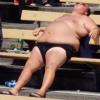Search the Community
Showing results for tags 'Structured'.
-
hi all, i've been checking out the fixed deposit and structured deposit products and i need some advices. by the way, these are 100% guaranteed return and 100% principal guaranteed products UNLIKE Lehman's mini-bonds. fixed deposit -> highest interest rates is from maybank, 1% pa for 18 months structured deposit -> 3.5%, 6.5%, 11.5% for 5 years maturity -> there are so many and each has its own pros and cons such as got penalty for early redemption, admin charges, low/high/potential growth, payout is made quarterly/yearly/maturity, insurance coverage, etc 1. what one must take note for structured deposit T&C ? 2. guaranteed % return range between 3% - 5%. some products have "potential" upside/growth to make it 11% - 12%. is potential = nonsense ? 3. i have made it very clear that my requirement is 100% got return + 100% principal guarantee, so RISK should be ZERO. what other hidden cost might involve that dilute my principal ? 4. Any products that you have found suitable for ZERO risk taker who just want the $$ to work slightly harder ? This is the % of cash that I need to keep in the bank for rainy days in addition to % cash that already invested in the stocks (blue chip). And, property investment is not something that I'm keen for another 2 years or so. Beside, the cash is not enough to hoot mid-to-high end property. Thanks !
-
there is no more question like Sir, are you interested in our latest promotion/product offering ... bla bla bla whenever I use the bank counter service. such as stress free counter service now :) July 8, 2009 STRUCTURED PRODUCTS DEBACLE MAS acts against 10 institutions By Francis Chan TEN financial institutions that sold their customers complicated investments which turned bad after the Lehman Brothers investment bank collapsed last year have been banned from selling similar products. The dramatic, unprecedented action by the Monetary Authority of Singapore (MAS) stunned industry watchers yesterday and drew praise from some consumer bodies. It followed seven months of investigations after about 9,900 people lost most or all of their investments totalling about $520 million in structured notes such as Lehman Minibonds, DBS High Notes 5 and Merrill Lynch Jubilee Series 3 LinkEarner Notes. Hong Leong Finance, which dealt with 2,145 disgruntled customers who bought $86.1 million worth of these structured notes, was given the harshest penalty by MAS: It cannot sell or advise customers on new structured notes for at least two years. One-year bans were handed out to brokerages CIMB-GK Securities, Kim Eng Securities, OCBC Securities and Phillip Securities. OCBC Securities was also ordered to stop using introducers such as independent financial advisers to provide advice on new structured notes. A six-month ban was given to DBS Bank, ABN Amro, Maybank, DMG & Partners Securities and UOB Kay Hian. The bans took effect on July 1 and punish the institutions for their poor sales processes when flogging the complicated notes to customers. They will not be allowed to resume selling such products until the MAS is satisfied that they have fixed all faults identified by its review and strengthened their internal processes for providing advisory services for investment products. Each must appoint an external party, approved by the MAS, to review its action plan and report on its implementation. The MAS investigated after affected customers complained that they had lost their savings because they had been mis-sold the Lehman-linked products. They described being sold products that were too risky for their comfort level or were advised by sales representatives who did not know the products well. The MAS found that the 10 financial institutions applied different internal controls and failed in a number of areas. Among other things, they gave the products a lower risk rating than that stated in the formal prospectus and pricing statements. They also did not do enough to ensure that their sales staff were properly trained and had accurate and complete information needed to sell the products. Although about 62 per cent of customers whose cases have been decided on were offered some compensation, the low payouts have led many to reject the settlements and consider taking legal action. Even though the MAS has highlighted the institutions' failings and penalised them, this does not automatically mean that they will be liable to investors. Some market watchers felt that the MAS penalty had only a minimal effect since the sales of structured notes have dried up, but others pointed to the intangible impact of damage to reputations. 'The unprecedented move by the MAS is in itself quite a painful penalty for these institutions to be subjected to, and they certainly would not like to be on that list,' said Mr Robson Lee, a partner at the law firm Shook Lin & Bok. The Consumers Association of Singapore (Case) expressed disappointment at the lack of due diligence and internal controls at the institutions. 'Case feels that individuals who were found to have breached the Financial Advisers Act should be investigated and taken to task,' said Case president Yeo Guat Kwang. The MAS confirmed that investigations against individuals are still under way and action may be taken in due course. The chief executive of the Securities Investors Association of Singapore (Sias), Mr David Gerald, said he was pleased that the MAS had asked institutions to rectify all the weaknesses identified and to review and strengthen all procedures.
-
- Structured
- product
-
(and 2 more)
Tagged with:
-
Investors of failed structured products to know outcome of complaints by mid-Jan SINGAPORE : The Monetary Authority of Singapore (MAS) on Wednesday said investors who have bought failed structured products will know the outcome of their complaints by the middle of January. Investors had alleged that distributors had mis-sold the products and misrepresented the risks. Minibond investor Ismail Deen was told last week that his complaint is still being looked into. He is one of nearly 5,000 investors who have complained to 10 financial institutions (FIs). Like Mr Ismail, most investors of DBS High Notes 5, Lehman Minibonds and the Jubilee Series notes will get some answers by mid-January. Final checks are being done on some complaints. Shane Tregillis, deputy managing director, Market Conduct Group, MAS, said: "That is to take into account the recommendations of the independent persons and to make sure they have taken into account any investigation findings, and also to check for consistency." MAS said 9-in-10 complainants have been interviewed. FIs have also decided on 80 per cent of the cases, but have yet to inform investors. For clear-cut cases though, investors have already been told of the outcome. The central bank has been working with financial institutions in the past 10 weeks. Mr Tregillis said: "We have been visiting, checking ourselves just to ensure the process, looking at the teams... the FIs have put in place in recent weeks, some of them are up to 100 people." MAS said the FIs will review the complaints in a non-legalistic manner and it will be based on principles of fairness. However, they are expected to take legal defence if the investors decide to take them to court. The central bank also said investors should be prepared to bear responsibility for their investment decisions. - CNA/ms what outcome, no case means no case liao... compensate to those who do not understand the meaning of "investment"? compensate to those who do not understand english at all? then u will see sudden surge of ppl claim dun understand english, all switch to their native language liao compensate to those who "teh gong" and hope to receive some form of compensation???
- 14 replies
-
STRUCTURED PRODUCTS SAGA 5 myths banks want you to believe By Larry Haverkamp (Doc Money) [email protected] 16 December 2008 1. Banks and brokers are repaying investors for the money they lost As of 10 Dec, Hong Kong banks had settled 60 of the 40,000 structured product cases (0.2 per cent). Investors got back $3.9 million of the $2 billion they invested (0.15 per cent). In Singapore, the amount is unknown. Our banks and brokers refuse to disclose it. 2. Both issuing banks and distributors are to blame for losses True, but issuing banks deserve more of the blame since they put the deals together. That is why DBS is at the centre of the storm. It structured the products - like High Notes - as well as sold them. Other issuing banks include Merrill Lynch (Jubilee Notes), Morgan Stanley (Pinnacle Notes) and Lehman Brothers (Minibonds). 3. Based on the high returns, people should have known they were getting into a high-risk investment What high returns? Take Minibonds, with sales of $508 million. It promised a 5 per cent return, which was only 1 or 2 per cent more than the same maturity government bond yields three years ago, when Minibonds were sold. A 5 per cent return did not trigger any alarms. It was reasonable. But the 5 per cent is a 'net' and not a 'gross' return since it doesn't include costs. Add the costs to get gross returns, which are much higher. Then it is easy to see that the structured product would need to take big risks to earn so much. The problem is, issuing banks around the world have an unspoken agreement: They do not reveal charges for credit and equity-linked notes. All costs are either buried in the initial pricing or deducted from the yield. No issuing bank will disclose them. 4. Issuing banks don't gain from investors' losses This is an issue with High Notes 5. Investors lost $103 million and a counterparty made $103 million. What counterparty? The prospectus says it is DBS, but DBS says it sold off its claim. Sold it to what party? For how much? Sold when? DBS won't say. It has taken the stand: 'Where required under regulatory or statutory guidelines, we will disclose the necessary.' 5. Sellers are returning investors' money DBS has charged $70 million against earnings to pay back investors. But there is a wrinkle. The $70 million also includes payments to Hong Kong investors, who suffered more losses. DBS won't say how much money goes to Hong Kong versus Singapore. It told me: 'As a matter of policy, we do not discuss individual cases, thus will not divulge how much will be paid to investors in each country.' It also won't say how much it re-purchases from investors at a discount, holds to maturity and then redeems for a profit. For example, DBS stands ready to buy back its High Notes 2 for 20 cents on the dollar. If it holds to maturity and redeems at $1.00, the bank makes a profit of 80 cents. In the worst case, High Notes 2 would default and the counterparty - DBS - gets the money that investors lose. Either way, the bank wins, thereby reducing the final costs to less than $70 million. DBS says it will not disclose the final costs - or profits - it expects from reimbursing Singapore investors.
-
- MiniBonds
- Structured
-
(and 1 more)
Tagged with:


